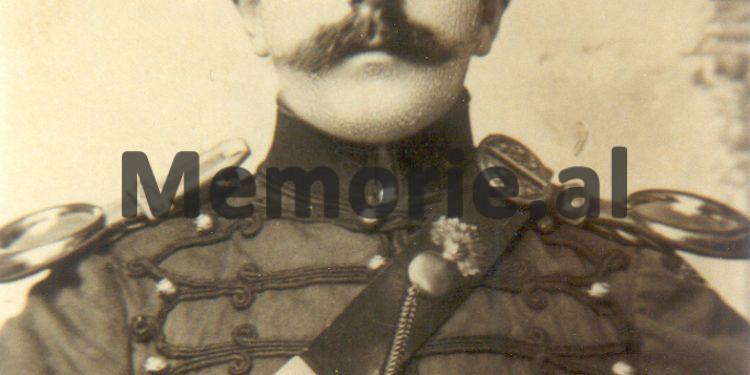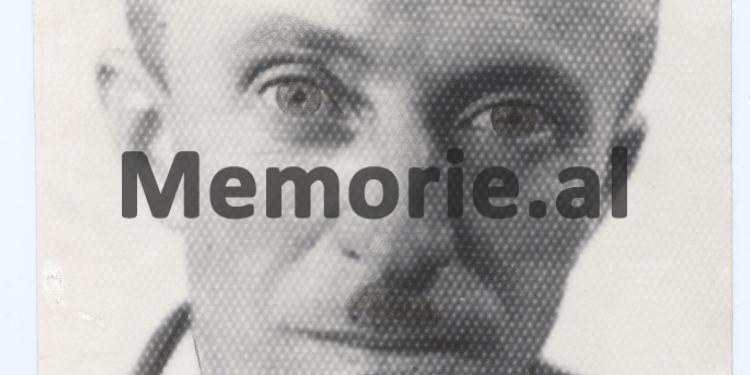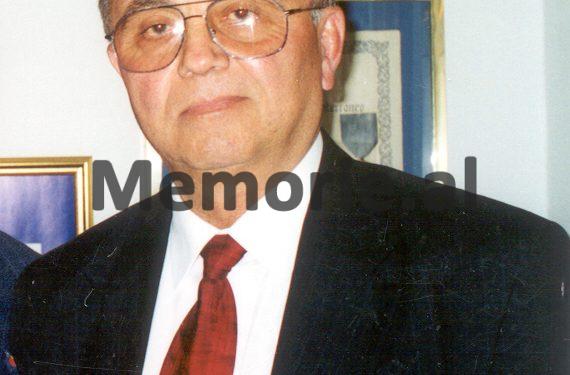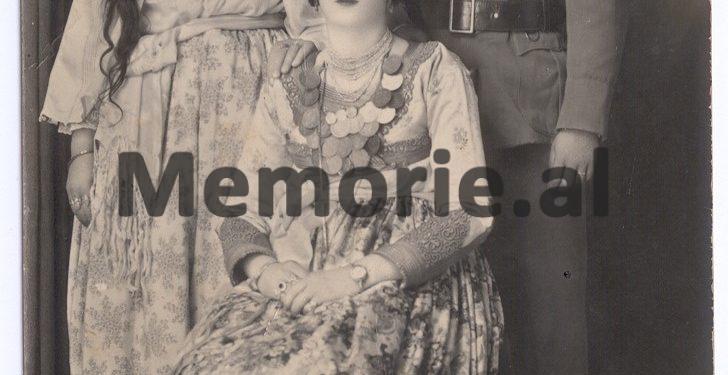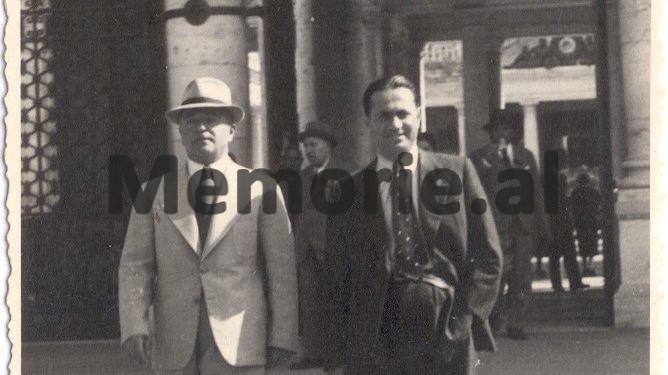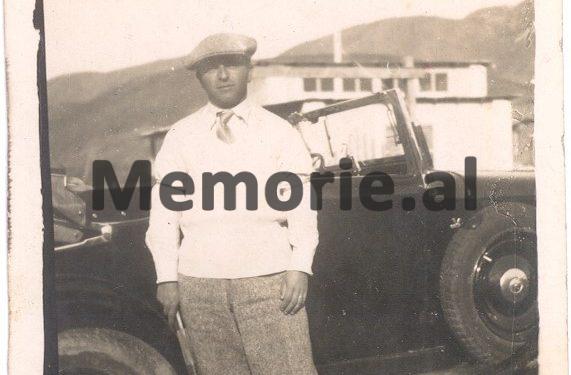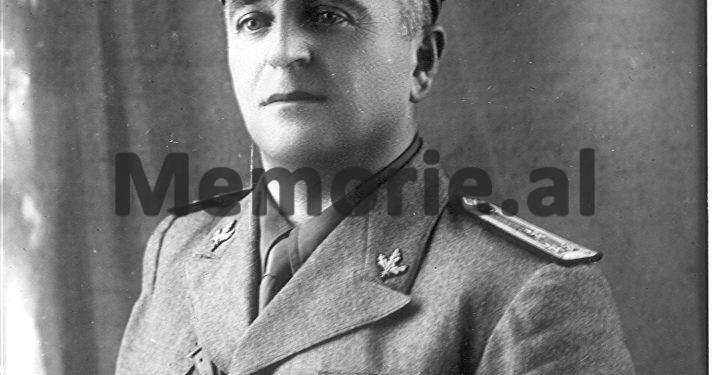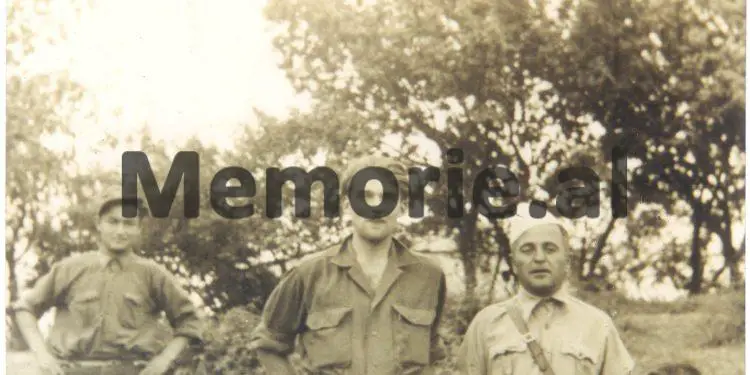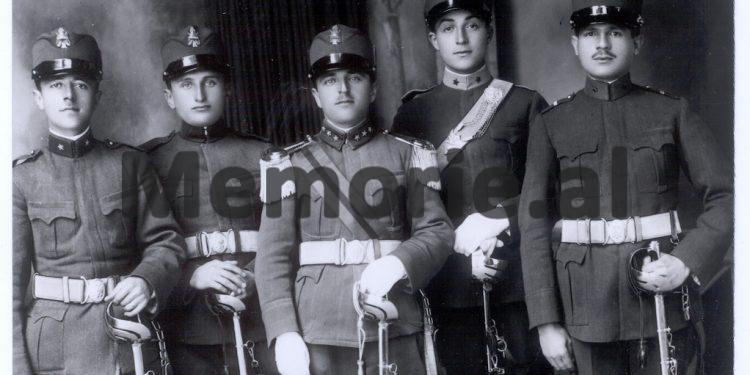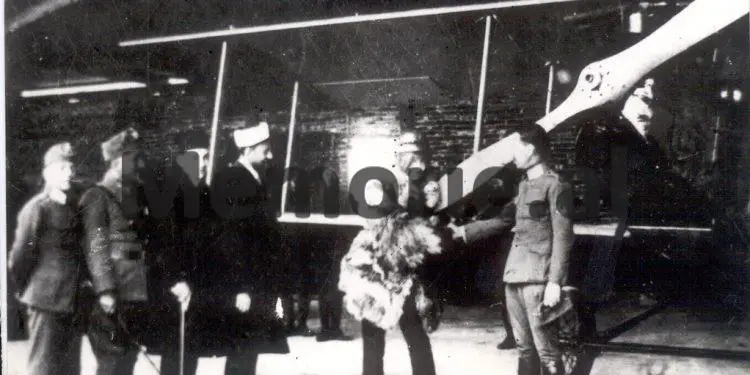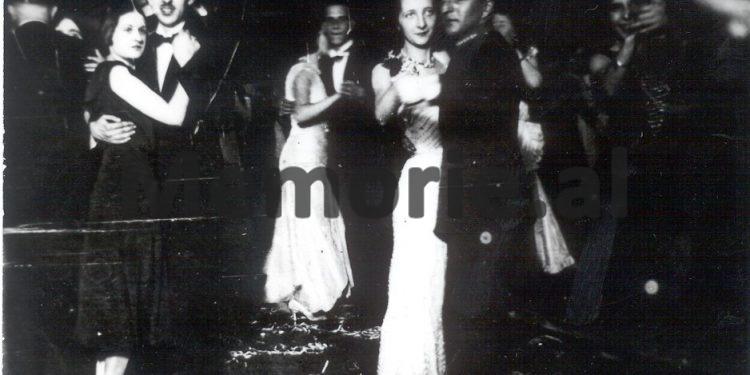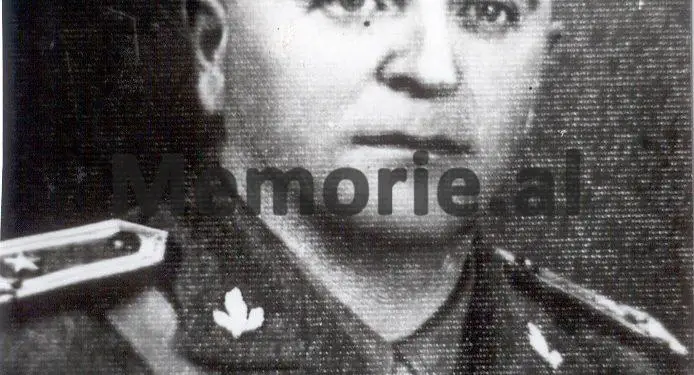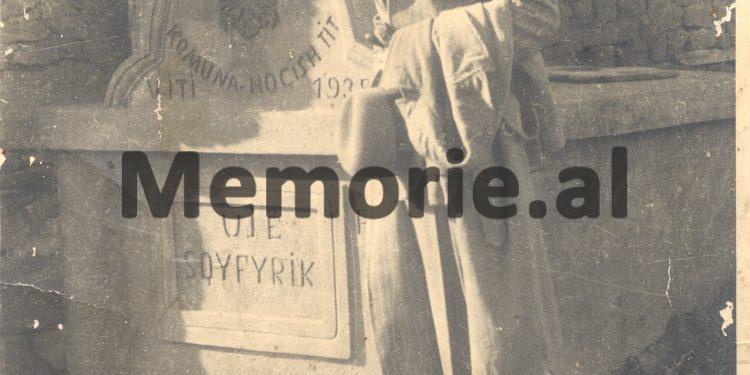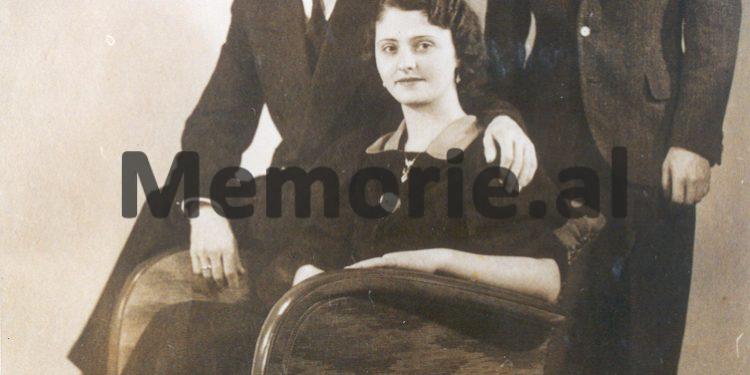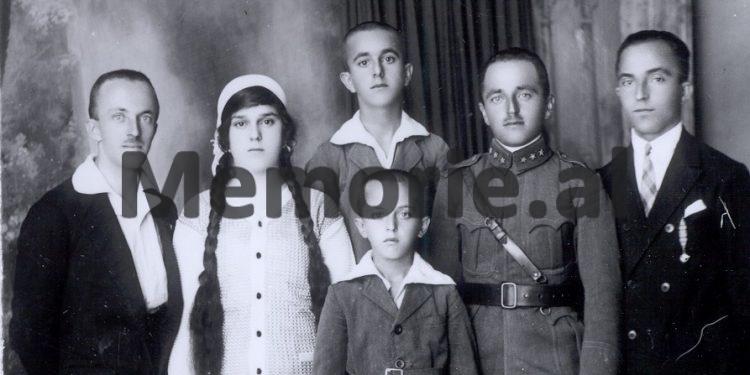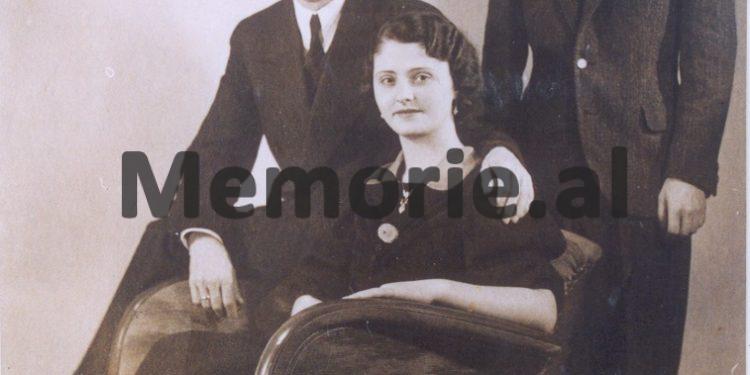Dashnor Kaloçi
Memorie.al publishes the unknown story of the famous Quku family from Shkodra, with early origins from a village of Dukagjini, where her ancestors during the Ottoman occupation, also served as adjutants of Sultan Hamiti, commanders of Podgorica Castle, as and were close friends of Mustafa Kemal Ataturk. The whole saga of the famous Shkodra family, where its suckers after graduating from military academies and the most prestigious universities in Europe and Asia, returned home and during the period of the Zog Monarchy, served and gave their contribution as intellectuals, senior military, doctors, teachers, etc., having official functions, such as mayors, mayors, etc. Memoirs of Qamil Quku and the testimonies of the researcher of the famous historian, Mentor Quku, (former Director of the Museum of Shkodra after the ’90s) who has left a very rich archive, photo library and library, which also talks about the family tree which after 1945 was persecuted by the communist regime of Enver Hoxha.
One of those Albanian families that has left its mark in the history of Albania, is undoubtedly the Quku family, from Shkodra, which is known as a nationalist family that has produced prominent intellectuals and men. Her suckers who studied and graduated from the most famous universities in Europe and Asia, gave their contribution to the establishment and consolidation of the Albanian state. But after 1945, like many other Albanian nationalist families, the Quku family was persecuted in the most barbaric manner by the communist regime of Enver Hoxha, being expropriated, imprisoned, and exiled for nearly 45 years. Regarding the past and history of this family, we will get acquainted in this article through the testimonies and stories of one of her descendants, Mr. Mentor Quku, which we received only a short time before he passed away in 2014. Mentor, Quku, a former teacher and well-known researcher who after the ’90s also served as Director of the Historical Museum of Shkodra, in addition to his research work where it stands out for Ndre Mjeda, which he has published in several volumes, he has left as his family inherited a library, archive and a very rich photo library, where, among other things, there are many documents, historical sources, legends and various legends about the trunk of the Quku tribe, on which it is based. Memorie.al for the realization of this article.
Origin of the Quku tribe
According to the legends of ancient men that have survived to the present day, the Qukaj of Shkodra, originate from the mountain village of Sumë, which is also known from the book of Dom Gaspër Gurakuqi, “Diocese of Sapa”, where related to this The family writes, among other things, “In the district of Shkodra, above Drisht and Boks, is the village of Suma, where there are 520 Christians and Muhammadans, from where the generous Catholic family of Kole Suma fell into the city.” In the province of Dukagjini even today, there is a neighborhood called Qukë. The history of this tribe, very well known in Shkodra, has been taken and researched by one of its suckers, named Qamil Quku, born in 1898, and who lived until 1972. Qamil is known as one of the most authoritative men of his tribe, and has left a legacy, an archive, and a very rich library of documents defining the past and ancestry of the Quku family.
Myftari, commander of the Podgorica Fortress
Among the first of that family was Ali Quku who was appointed as a clerk in the administration of Kara Mahmud Pasha. Ali had two sons, Hysen and Myftar. Hyseni was a major in the castle of Podgorica, and from his marriage to Kaimale, Myftari was born. He is said to have been born inside the Podgorica fortress. This boy inherited his father’s profession, and for this reason he was nicknamed Myftar Topçia. This tradition also happened to future generations of this family. This is what happened to Myftari’s son, Shaqir Quku, and later to his two sons Faik and Shyqyri, who became career officers. (Later, the same tradition was continued by Hysen Topçiu’s son, named Ermal, who after the ’90s, graduated from a Military Academy in Turkey). Myftari (first) grew up in the house of Qukajve (Topçijve) in Qafë, a neighborhood of Shkodra very close to Ajasëm. Then the family came to Parrucë, where a part of the Qukaj trunk still lives today. Myftari also inherited his father’s profession, and received the highest rank, being also appointed Commander of the Podgorica Fortress. Myftari practiced artillery for 50 years and in the middle of his career, he came to the castle of Shkodra. When he reached the age (63 years old) he expressed the desire to leave the task, but because he was very prepared, he was again held as commander of Shkodra with the rank of bombs and for many more years. He married Kaden Buda in 1851 and for 17 years had no children. In 1868, their first child, Shaqiri, was born, and in the years that followed, other children were born. The elders remember Myftari until the age of 90, riding a horse in the castle of Shkodra. When Hyseni and Idrizi grew up, they stayed in the Parrucë neighborhood, while Shaqiri bought Ndoc Laca’s house in Rus. While Myftari grew up in the house of Hysen Quku, together with a brother from his mother, Dulaq Llazani. From this, the proximity of Qukajve with Lacej remained. Of a generation with Myftar Quku was also Hasan Quku, who has been quite famous in Shkodra. This became known after he signed the petition for the protests of the Albanian population of the territories of Central and Northern Albania, addressed to the Congress of Berlin, against the intentions for the partition of Albania in 1878. Of the children of Myftar Quku, only Shaqiri became an artilleryman, while the middle boy, Hyseni, finished high school, graduating as a lawyer. He practiced as a judge in Lezha, Vlora, Kukes, and Tirana. Hyseni also had a penchant for poetry and musical instruments. His two sons inherited their mastery as instrumentalists, becoming very famous in Shkodra, such as Dush Topçia and Nak Topçia. Among Hysen’s descendants stand out talented teachers like Mustaf Topçia, and sports like Hysen Topçia (third), scholars and polyglots like Nuh Topçia, Smajl Muça and Sami Muça, artists like Miriam Bruçeti (Topçia).
Idriz Quku, adjutant of Sultan Hamiti
Among the famous men of this tribe was Idriz Quku, who served as a member of the Turkish Imperial Guard and especially as a personal bodyguard of Sultan Hamit. He served as Hamit’s guard when the latter was under arrest in Thessaloniki in 1908. Idrizi died in miserable condition in the city of Shkodra. While Shaqir Quku, was born and raised in Ajasëm and he had served as an artillery commander in the garrisons of the castles of Podgorica, Shkodra, Puka, Prizren and Tuz. He has also been the conductor of the Shkodra music band for 15 years. He later worked as an economist and married Oso Dedja’s daughter, with whom he had 6 sons and a daughter. Further his family had many descendants, who studied in high schools and became doctors, economists, and lawyers. Shaqiri’s sons, Faiku, Qamili and Myftari, were educated at the Saverian College of Shkodra and received their first lessons in that institution where most of the children of well-known Shkodra families were educated. Later, Sabriu also studied in this college. Shaqiri took part in the Balkan War, where he was wounded and then went to be treated in an Istanbul hospital where he died. A year later, his wife, Esmaja, also died in Istanbul. Their family remained fragmented and without any support in the middle of Istanbul. Most of the family were young children and they managed to get an education by graduating as military and lawyers in Western European countries.
Shyqyri Quku, friend of Ataturk
Another well-known sucker of this famous tribe was Shyqyri Quku. From various sources and testimonies, it is said that he had a close friend Mustafa Kemal Ataturk. After graduating from high school in Istanbul, he served as a senior officer in the Turkish army. In the years 1945-’54 he lived and worked in Albania. Another well-known man from the Quku tribe was Shtjefën Quku, about whom the Italian scholar Libardi Camillo also spoke, in the book “Albanian patriotic movements in the years 1910-’12” In this book he states: “In Mazrek there were three patriots who were ready to give their lives for Albania, these were Dom Lorenc Spathara, Shtjefën Quku, and Simon Doda from Mirdita. After reaching an agreement with the insurgents, they sent word to the highlands, and with dozens of people ran to Mazrek. There were selected 75 young people from the bravest and as we arranged them, with ammunition and food, we sent them down in the dark towards the city with Shtjefën Quku in charge “.
Connections with large families
Thanks to the good name of this family, Qukaj, have established friendships and family ties with Çaushollaj and Bushatllinjtë, who in different periods of the history of this city have ruled Shkodra. They have also established connections with the Beshirs of Tirana, as well as with the famous Borshiots stabilized in Shkodra. They have also established connections with the Suljots, Bletej, Hoti, Dedej, Russians, Çekiçës, Garucët, Spahijt, and Hasanaj. Myftari (second) married Bianca Maria Bossion from Milan, while Bardhyl, married Geriana in the US. The members of the Quku tribe, mainly served as: military, economists, lawyers, doctors, businessmen, etc., but they during the years of communist dictatorship, suffered savage persecution being labeled as “Nursery of wasps”.
Qamil Quku, the deputy prefect who saved Leskovik
One of the famous men who came out of the trunk of the Quku tribe, was also Qamil Quku, who in the difficult period of 1942-’43, when he served as deputy prefect of Leskovik, saved him from the Italians who wanted to burn him. in revenge for the losses they had suffered. Who was Qamil Quku, where was he educated and what was his career in the civil administration during the period of the Zog Monarchy and in the years of the Nazi-fascist occupation of the country? Qamil was born on January 5, 1898 in the old house of the Qukej in the Perash neighborhood of the city of Shkodra. His father, Shaqir Quku, at that time was the commander of the army in the fortress of Shkodra, while our mother, Esmaja, was the daughter of Oso Dedja. Regarding the education and career of Qamil Quku, his son, Mentor, said: “Our father, Qamil, completed the primary and unique school in the city of Shkodra and in 1915-1916, he completed the fifth year of high school in The Jesuit College of that city. In the archive of our family is preserved even today the notebook of Qamil Quku (Topçia), with no. 32 of class V of 1915-‘16 with the classifications, month by month, as well as with the final classification dated 30 June 1916. In 1916, the waves of the First Balkan War forced him to emigrate to Istanbul. This happened because the whole family went after the father, (our grandfather) who served as a Turkish army officer. There in Turkey, Qamil graduated from the Turkish high school with excellent grades in the city of Adrianople. A special place in his memoirs is occupied by the Albanian environments that had occupied entire neighborhoods of Istanbul. After the accidental death of his father, Shaqiri, in 1918 and our mother a year later, Qamil, together with his other brothers, returned to Shkodra in 1920. Since his two older brothers, Shyqyria and Faik, were in the military, the entire burden of the family fell on him. Thus, together with our uncle, Alush Dedjen, he took care of the younger brothers and the only sister Jolldizi “, testified Mentor Quku, regarding his father’s education.
Children’s education in Turkey and Italy
Regarding the further education of his father, Mentor Quku said: “With the care of Qamil, his younger brother, Myftari, continued his studies at” Robert College “in Istanbul and then for Medicine in Turin. Her sister, Sabrija, continued her high school studies in Italy (with a scholarship) and then in Turin for Law. The other brother, Fetiu, continued his studies at the state gymnasium in Shkodra. The sister, Jolldyzi, was married to the new officer from Prizren, Gani Dida. At this time, Qamil was offered a scholarship to study in Vienna, but he refused because of his dependent family. In a photo dated November 6, 1936, from Turin, the young doctor from Shkodra, Myftar Quku, is dedicated to his brother, with this dedication: ‘Qamil, the symbol of love and brotherly sacrifice, today he is happy with me , for the greatest joy of my life. Dr. Taro Quku ’. There are dozens of such dedications in our family archives that our brothers and sisters dedicate to Qamil, for the great sacrifices he made for them. Qamili then attended the pedagogical course in Kavaja, which had been opened by the new Albanian state, while his brother, Faik, was accepted into the new Albanian army. After completing that pedagogical course, he started working as a teacher in one of the primary schools of Shkodra and in the period from November 21, 1921 until 1929, he served in the newly opened Albanian schools in Rus i Vogël and Perash of Shkodra, were one of the earliest teachers of the Albanian language who came out with the re-creation of the new Albanian state by the Congress of Lushnja. Qamil had as his student, Imam Vehbi Ismaili, who until a few years ago served as honorary president of the Islamic Community in the US, as well as Arshi Pipë, etc. “Even our father’s two older brothers, Faik and Shyqyria, had Qamil as their best and most authoritative advisor, because of the life experience accumulated during the waves where life had struck him”, recalled Mentor Quku, for his father, Qamil, who took care of his brothers’ education in Albania and Italy.
Qamili, 13 years Mayor
In 1929, Qamil Quku finished in Tirana a course that had been opened by the government of that time for municipal officials and after its completion, on April 16, 1929, he was appointed mayor of Bushat. Since then and for 13 years, Qamili served as mayor in various districts of the country, such as: Koplik, Bushat, Bilisht, Dardhë, Roskovec, Bozhigrad, Hoçisht, Shegan i Lushjes and Trebinjë e Pogradec. In 1936, Qamil Quku married Naxhija, the daughter of Ali Borshi from the well-known door of the Borshiots, from whom came dozens of lawyers, military, teachers, engineers and learned men. On November 4, 1942, he was appointed deputy prefect of Leskovik and remained in that position until the liberation of this province, at the end of May 1943. From here, Qamil Quku settled in Tirana with his family in the apartment of of his brother, Faik Quku, in New Tirana. In August 1944, he moved with his family to his hometown of Shkodra. One of the most important events in Qamil’s life is undoubtedly that of 1943, when he served as deputy prefect of Leskovik and saved that province from the Italians, who wanted to burn it in revenge for the losses they had suffered from the partisan forces of nationalist. Regarding this event, in the memoirs that Qamil Quku left written by his hand, it is said, among other things: “From November 4, 1942, until the liberation of Leskovik from the occupation, I served in this city with the duty of deputy prefect. At the end of the last operation for the liberation of Leskovik, after a fierce battle for three days and nights, 21 soldiers and 2 Italian officers of the Leskovik garrison were killed. To save this garrison, three motorized convoys of the Italian army arrived, which in revenge would destroy the entire city of Leskovik, and would kill up to 250 Albanians. These soldiers were released into the city and started looting the movable property and gathering the men they found. Women children terrified by the barbaric act, sought salvation; Thus, in the face of such a life-threatening storm, I went to the Command, where I found Neki Çaçi (father of the partisan Skënder Çaçi), Xhaferr Glina, the father of the militant Skender Glina and others ready to be shot. These at once over my intervention, were released to save your life. In this apartment on this occasion are housed various families, such as that of Neki Çaç, Gjylsyma Starjes, Syri Konica, etc. The measures taken by the Italians to destroy Leskovik were stopped, and all the apartments of the partisans were saved. All the loot that had been looted by the military columns coming from Ioannina and Gjinokastra, they took from you and returned to the lords, while the loot looted from the army column coming from Erseket could not be taken from you. Before leaving the Leskovik region, this column fell under the blows of Petrit Dume’s gang, which stopped the looted clothes, burned several trucks and took more than 20 soldiers captive, in addition to the killed. After a week of this action, the Leskovik garrison left the city in the hands of the partisans, then crossed the road from Gjinokastra to Ioannina, while my family and I crossed the liberated area in the direction of Korça. On the way I met Petrit Dumen in Barmash and in the hills of Borova with the national liberation squads “. This is what Qamil Quku wrote in his notes regarding this event, which he kept in Shkodra in June 1953 and which are today preserved in the archive of the Quku family.
Imprisoned by the communists
After the end of the war and the coming of the communists to power, Qamil Quku was imprisoned and fought by them being labeled as a ballist, especially as the brother of Colonel Faik Quku, one of the founders and top leaders of the National Front. The event of 1943, where Qamil had saved Leskovik from a major catastrophe and sheltered communists, was interpreted differently and his name was never mentioned. Wars, deprivations, and the blows of class warfare also favored some of the diseases he endured in Stoicism as well as the poverty imposed by the communist regime. He was fired several times for political reasons only. From September 20, 1946 until June 30, 1953, he served as secretary-accountant at the Civil Hospital of the city of Shkodra, while from July 1, 1953 until June 30, 1954, he worked as a worker in auxiliary economies. From May 6, 1958 until his death on January 2, 1972, (at the age of 74) he worked as a warehouse worker on the Shtoj Farm. In the city of Shkodra, Qamil Quku is remembered for his skills in the field of pedagogy, where he was a qualified professional, which he tried to pass on to his three children. Qamil was also very passionate about books, philately, and photography. In his house, he had all kinds of tools, mason, carpenter, mechanic, electrician, tinsmith, shoemaker, etc., which he used himself, considering work as a symbol of the virtue of the honest man. Qamil Quku and his wife Naxhie Borshi left three children, Lirija, Liljana and son, Mentor. Naxhija, was an example in work and society and left a good name to all those who knew her closely. She followed her life partner, Qamil Quku, everywhere in communes and cities, she experienced the difficult conditions of occasional transfers, persecutions, destruction of loot during wars, etc. After a life full of sacrifices and deprivations, Naxhije Borshi also died in June 2001, at the age of 83, surrounded by children, grandchildren and a wide circle of relatives and friends who knew and respected him until the moment of last of life.
Faik Quku, at the academy of Versailles and Turin
The most famous in the Qukaj tribe, undoubtedly was Faik Quku, who had graduated as a senior officer in Turkish, Italian and French academies. Faik made a long military career in Albania, and played a prominent role in the creation of the Albanian National Army, immediately after the Lushnja Congress. In 1921, the French government awarded two scholarships to Albania, to study at the Military Academy of Versailles “San Cyr”. One of them was taken by Faik Quku, who was considered a military man with high professional training. Regarding Faik’s education at that academy and his military career after returning to Albania, his nephew, Mentor Quku, said: “There at that famous academy, they taught outstanding military strategists, including Sharl De Gol, the next president of France. Faik completed his studies in 1924, with high results, occupying a place in the golden book of the Academy. As an excellent student, he was called up to serve in the French army, but refused and returned to Albania, where he worked enthusiastically to organize the army, alongside English General Percy. Faik was assigned to the General Command of the Albanian Army with the rank of lieutenant, where he contributed to the creation of the Albanian military aviation. In 1926, based on an agreement that the Albanian government had made at the time with the Italian one, Faik was sent to study at the Military Academy of Staff in Turin. Even in that academy he graduated with high results, being particularly prominent in the General Staff training that was organized on the occasion of graduation. After that he returned to his homeland and was appointed commander of the Elbasan Military Garrison and director of the Special Military Qualification Center. He also had the duty of Inspector of the Military School in Tirana, which appointed new officers. At the same time, Faik was also engaged in scientific activities in the field of military sciences. At the behest of the Albanian Government, Faik prepared the tactics and strategy of defending the country from a possible Italian attack. The idea of defending the country, according to Faik, was to organize resistance in the mountains, since the Albanian army was not technically equipped to a proper degree to organize defense on the coast. After the uprising in Fier, in 1935, Zogu lost faith in Faik, thinking that he had a hand in the uprising, since a good part of its organizers had been his students, and transferred him to Berat, to a reservist ward. “, Mentor Quku told about his uncle, the soldier Faik Quku.
Prefect in Vlora and Gjirokastra
Regarding Faik’s activity after April 7, 1939, when fascist Italy carried out military aggression against Albania, Mentor Quku testified: “At that time Faik resigned and withdrew to prepare the clandestine resistance. In view of this goal, he accepted the proposal of the Government of Maliq Bushati to become prefect of Vlora. There he met with well-known patriots, Nuredin Vlora (grandson of Ismail Qemali) and Fuat Dibra, with whom he agreed to organize an anti-fascist resistance, calling on Albanian nationalists to join a united front. only. So in the first days of the occupation of the country, together with Mit’hat Frashëri, Fuat Dibra and Hasan Dosti, he participated in the creation of a secret organization against the Italian occupier, which would later be called “Balli National “. From the first meeting it was decided that the organization be headed by an Executive Secretary, a position in which Faik Quku was unanimously elected as the youngest he was. On November 28, 1939, Faik ordered the Albanian flag to be hoisted in the building of the prefecture of Vlora and organized a demonstration that ended in the form of a pilgrimage to the cemetery of the martyrs of the 1920 war. While in Vlora as mayor, Faik had close ties with Seit Kazazi and Ndue Palin, who were known as senior exponents of the National Front. For these actions, he was fired as prefect, but was reinstated again later, being appointed prefect in Gjirokastra (in the spring of 1941), after the Italo-Greek war. In the city of Gjirokastra, Faik won the sympathy of the people, so much so that the communists opened their mouths saying that he was a communist, in order to win over the people. From Gjirokastra, Faik was transferred to Durrës, where he stayed for only three months, because he was later appointed and sent to serve in Kosovo. “Even there he continued the work for the consolidation of the organization of” Balli Kombëtar “, propagating to the people the nationalist platform”, recalled Mentor Quku, the activity of his uncle, Faik Quku in the period when he served as prefect in Vlora and Gjirokastra and later when he was in Kosovo.
Balli delegate in Mukje
In September 1943, Faik participated in the Mukje Meeting as a delegate of the National Front and for that reason, by order of Jakomon, Faik Quku and some other nationalists, such as Ethem Haxhiademi, Sulejman Meço, Islam Ndreu, Halil Meniku, Hysni Shaqiri and Enver Bushati were fired on charges of abandoning their duties. After the capitulation of Italy and the arrival of the Germans, Faik Quku had several offers from Enver Hoxha to join the National Liberation Army and take senior military positions at its head, but he refused because he had deep anti-communist convictions. . For this reason Enver Hoxha declared him an enemy of the people. Immediately after the capitulation of fascist Italy, at the house of Faik Quku in Shkodra, a meeting was held with representatives of all political forces, like the one that took place in Mukje. Also another meeting where Faik also participated, was held in 1943, (after Mukje) in the house of Dr. Bahri Koplikut, where Faik Quku and Dr. Bahri Kopliku represented the National Ball, while Zija Dibra and Xhemal Broja, the National Liberation. After the occupation of Albania by German forces, two senior Nazi officers asked to meet with Mit’hat Frashëri and Faik Quku, but despite the threats of the German side, the leaders of Balli did not accept the talks. Faik Quku did not attend the First Balli Congress held in Berat, due to the debates that had begun to arise between the “young” and the “old”. In the summer of 1944, Faik Quku was proposed by the leadership of the National Front to take command of the Front Army in the South, but he refused such a task. In the summer and autumn of 1944, Faik made contact with the nationalist leaders of the Great Highlands parish and made efforts to prevent communist forces from penetrating the North. For this, he also met with officers of the British missions in the Cukal highlands, asking them to land as soon as possible in Albania, to avoid the seizure of power by the communists. Also in the beginning of 1944 he became the initiator of a meeting for the unification of different political forces and in March of that year, he collaborated with Mit’hat Frashëri and Vasil Andoni, to create the “Shkodra Covenant”. In September 1944, pursued by the German SS forces, he was forced to leave in the direction of Boga and the Thethi Mountains and when the German forces made many arrests in Shkodra, who then sent them to the Prishtina Camp, the SS units surrounded the house. his, to arrest him, but he could escape “, recalled Mentor Quku, regarding the anti-fascist activity of his uncle, Colonel Faik Quku, in the years 1943-’44.
Faik’s departure from Albania in 1944
Like many other senior exponents of Balli and Legality, Colonel Faik Quku, on November 21, 1944, left Albania. Regarding this and his political activity in emigration, Mentor Quku testified: “Desperate for the fate of the homeland, a determined opponent and declared against the communist government of Enver Hoxha, Faik settled in Gruneo in Bari, Italy, and then we political emigrant camps that were opened at that time by the Anglo-Americans, such as Santa Fara, Santa Maria De-Luka, Reggio-Emilia, etc. He then moved to Rome, where he also served as UNRRA Director for Southeast Europe, which he held until 1949. While in Rome in 1948-49, Faik was offered the post. of the commander of the Army of the League of Arab States, but did not accept it, because he was of the opinion that the Albanians should not interfere in the “Mediterranean Bazaars” that they could be harmed. He was also offered the Command of a Battalion with Albanian soldiers, destined for the defense of the holy sites of the three faiths in Jerusalem, which he also did not accept for the same reason. In Rome he contacted American diplomats to discuss the Albanian cause, and in 1949 he was summoned to Washington to meet with senior State Department officials, where he was offered to lead an anti-communist uprising. in Albania. Faik Quku set two conditions: to secure Korça and Gjirokastra and to carry out the uprising with the declared help of the USA. Such a thing was not accepted by the Americans and then, together with his family, Faik Quku definitely settled in the US. In 1946-50, Enver Hoxha asked official Moscow to make possible the repatriation of Faik Quku and nine other nationalists, under the pretext of prosecuting them for war crimes, but that was not possible. Faik died in the US in the summer of 1963, with the grief of longing for his beloved homeland, surrounded by honors from family, from many of his benevolent friends. He left in manuscript a historical work on the Second World War in Albania, which his sons managed to publish a few years ago. So great was the hostility of the Albanian communists for the figure of Colonel Faik Quku, that even in the amnesty of January 1956, his name appears in the “list of criminals” who had no right to return home. ” This is how Mentor Quku ended his testimony about his uncle, Colonel Faik Quku, the famous military man who had graduated from three academies and the ardent nationalist who, although he had reminded Count Ciano of the 1920 Vlora War, the communist regime of Enver Hoxha, declared him an enemy of the people and forbade him to return to his homeland. Faik had two sons: Myftari, who graduated as a doctor for skin and venereal diseases in Turin, and Qamili, who served as prefect and teacher for a long time. Myftari worked in Italy and the USA where he died, while Qamil was persecuted by the communist regime of Enver Hoxha, and died in 1972. While Faik’s brother, Sabri Quku, who graduated in Turin as a lawyer and worked as a judge and lawyer until 1947, then was exiled by the communists and he died in misery in 1980. We can also mention some other descendants from this well-known tribe, such as Feti Qukun, who served as a teacher during the period of the Bird Monarchy, who after 1945, was imprisoned by the communist regime of Enver Hoxha. From the younger generations of Qukaj, is: Bardhyl, Faik’s youngest son, who has reached the highest spheres of world business in New York. Meanwhile, Shenol Quku, has reached the highest peaks in the field of science, dealing with space flights. Most of the Quku tribe live in the city of Shkodra, where they are in complete harmony with other Shkodra families. Some of them have emigrated to the USA, Canada, Italy, Austria, Egypt, etc./Memorie.al




